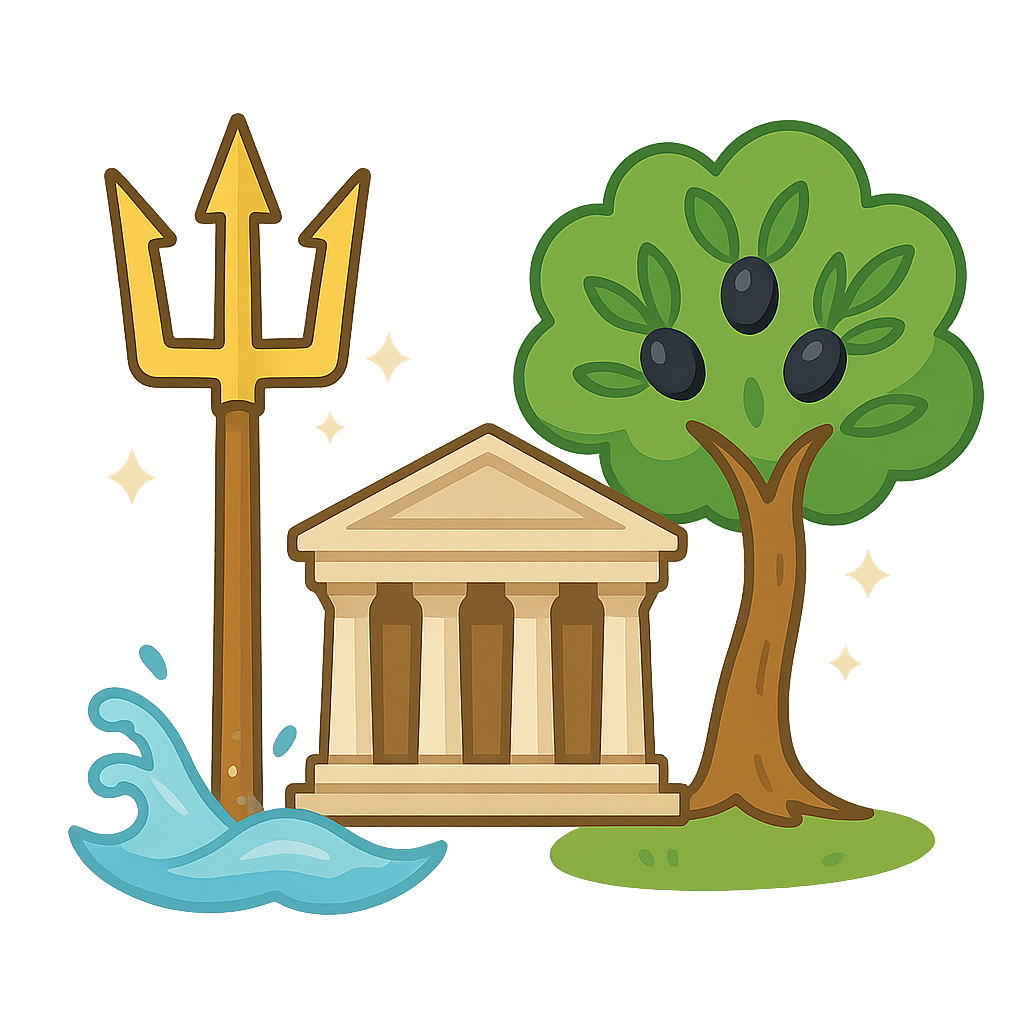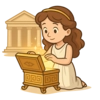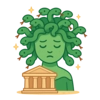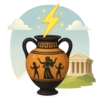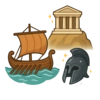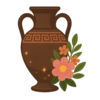Athena and the Naming of Athens
My name is Athena, and from my shimmering home on Mount Olympus, I watched as mortals built a magnificent new city on the coast of Greece. Its white stone buildings gleamed under the sun, and the sea beside it sparkled like a sapphire. I saw its great potential, but so did my powerful uncle, Poseidon, the mighty ruler of the seas. We both wished to be the city’s patron, its special protector, and so a contest was declared to see who could offer the city the most wonderful gift. This is the story of that contest, a tale people now call the myth of Poseidon and the Founding of Athens. I will tell you how a quiet, thoughtful gift won the heart of a city that would one day carry my very own name, Athens.
The day of the contest arrived, and the city’s people, led by their wise, half-serpent king, Cecrops, gathered on the high, rocky hill called the Acropolis to watch. Poseidon, never one for subtlety, went first. He loved a grand entrance. With a roar that sounded like a thousand crashing waves, he lifted his enormous, three-pronged spear, the trident, and slammed it into the stone ground. CRACK. The earth trembled, and from the new fissure, a powerful spring of water burst forth, shooting high into the air. The people gasped in amazement at this incredible display of raw power. It was a spectacular sight. A few brave citizens rushed forward to taste the miraculous water, but they immediately spat it out. Can you guess why? It was as salty as the ocean itself, completely useless for drinking or watering their crops. Poseidon’s gift was impressive, but not very practical. Then, it was my turn. I approached without a single shout or tremor. I knelt gracefully and planted a small, unassuming seed into the soil. I whispered a few words of encouragement to it, and instantly, a tree began to grow before their very eyes. Its trunk was gnarled and strong, its leaves were a beautiful silvery-green, and its branches were soon heavy with small, dark fruit. This was the very first olive tree. “This tree,” I announced to the crowd, “is a gift of peace and prosperity. Its fruit can be eaten, its oil can light your lamps and enrich your food, and its strong wood can be used to build your homes and ships. It is a gift that will nourish and support you for all time.”
King Cecrops and the people of the city stood in thoughtful silence, considering the two very different gifts before them. Poseidon’s saltwater spring was a spectacle of divine power, a sudden and dramatic miracle. But my olive tree was a gift of lasting value, something that would help them thrive and grow for generations. It was a choice between a momentary wonder and a lifetime of sustenance. After much deliberation, the king announced their decision. They chose my gift, the humble but enduring olive tree. In my honor, they declared that their magnificent city would forever be known as Athens. Poseidon was furious at first, his pride wounded, and he stormed away in a thunderous mood. In time, however, he came to respect their wise choice. The olive tree became the sacred symbol of Athens, representing wisdom, resilience, and peace. For thousands of years, this story has been told to show that the greatest gifts are not always the loudest or the most dramatic. Sometimes, the most valuable things are those that quietly help us grow. It is a reminder that wisdom and foresight are true powers, and that legacy lives on even today whenever you see an olive branch used as a symbol of peace, connecting us all back to that ancient choice made on a sun-drenched hill in Greece.
Activities
Take a Quiz
Test what you learned with a fun quiz!
Get creative with colors!
Print a coloring book page of this topic.

